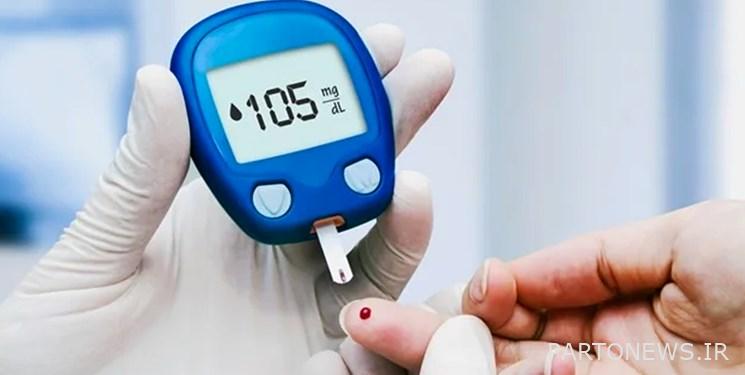What foods should diabetics not eat?

According to Fars News Agency’s health correspondent, diabetes or diabetes is a disease in which the amount of insulin secretion is lower than the amount necessary to maintain normal blood sugar. Insulin is a substance that is made in the body of all normal people by part of the pancreas and is released into the bloodstream. This substance plays an important role in the metabolism of starchy substances and simple sugars and thus blood sugar regulation; Therefore, its relative decrease in the course of diabetes leads to an increase in blood sugar, which, if not properly controlled and regulated, leads to irreparable damage in different parts of the body.
The meaning of the relative reduction of insulin is that either the secretion of insulin from the pancreas decreases or its effectiveness decreases in the body; It means that there is not enough insulin in the body anyway.
Its common type (type 2 diabetes) is usually asymptomatic or with brief symptoms; As a result, the affected person may not be aware of his illness for years, and during this period, blood sugar is more than normal, leading to irreparable damage in different parts of the body, especially the eyes, kidneys, peripheral nerves, heart and brain vessels, and other parts. become a body Diagnosing and controlling the disease in the early stages can prevent many of the aforementioned complications.
For this reason, people who are at a higher risk of developing the disease, such as people over the age of 45, even without any symptoms, should have a fasting blood sugar test at least every 3 years, with early detection and blood sugar control. It is appropriate to prevent or delay the occurrence of many of these injuries.
Fereshte Fazouni, head of the Department of Nutrition and Pharmaceuticals, Vice President of Health, Shahid Beheshti University of Medical Sciences He said: Changing the food pattern of people and excessive consumption of fast foods, carbonated soft drinks and industrial juices, fatty and fried foods, sugary and sweet substances and reducing consumption of fruits and vegetables and lack of sufficient physical activity are the factors influencing the occurrence of overweight, obesity and diabetes. It is in the country.
He pointed out: Setting a suitable meal plan for people with diabetes and setting the time spent on main meals and snacks is done with the aim of controlling weight, sugar, fat and blood pressure.
According to Fereshte Fazoni, by following a proper diet along with drug treatment and blood sugar control, chronic complications caused by diabetes such as kidney failure, high blood pressure and cardiovascular diseases can be reduced.
He emphasized: the diet of diabetic patients, while containing enough energy to perform daily activities, should also help control the body weight. It should also provide sufficient protein and required micronutrients, including group B vitamins, which play an important role in controlling neurological disorders.
The head of the Department of Nutrition and Pharmaceuticals of the Ministry of Health noted, based on the conducted studies: high consumption of vegetables, legumes, fruits, nuts, moderate consumption of seafood, high consumption of whole grains such as whole grain breads, reducing or eliminating the consumption of sweet drinks and simple sugars and consumption Low-fat dairy products are associated with a lower prevalence of diabetes.
Foods that diabetics should avoid
The head of the Department of Nutrition and Medicine of the Ministry of Health advised diabetic patients to avoid consuming foods with high sodium such as salty foods, sausages, sausages, chips, puffs and canned foods, ketchup, salad dressings, pickles and all kinds of salt.
He emphasized: These people should avoid consuming high-fat foods containing high cholesterol or trans fatty acids such as high-fat dairy products, butter, cream, fried foods, high-fat red meats, solid oil, offal and brain.

Fazoni asked diabetic patients to avoid consuming foods containing simple sugars such as sugar, honey, jam, all kinds of sweets, cakes, cookies, biscuits, carbonated drinks, syrups and sweet drinks, all kinds of ice cream and commercial juices that have added sugar. .
Golden tips in the nutrition of diabetic patients
The head of the nutrition and drug department of the deputy health department, pointing out that the diet of each patient in the diabetes or pre-diabetes stage is determined according to his conditions and accompanying diseases, advised diabetic patients to refer to comprehensive health service centers to receive a meal plan and nutritional advice. .
Fazouni further advised diabetic patients to observe the following important nutritional points.
Use food sources containing omega-3 (such as fish) and unsaturated fatty acids (such as olive oil) or other types of liquid oils (sunflower, sesame) in appropriate amounts and according to the adjusted diet.
Balanced use of omega-3 and unsaturated fatty acids makes cell receptors respond better to insulin.
Be sure to eat food and snacks in small quantities and more often (5-6 meals a day) and do not eat too much at any meal.
Be sure to use a variety of vegetables with your food.
It is recommended to increase the consumption of legumes in diabetic people.
Cooking rice in the form of mixed pilafs such as bean and lentil pilaf helps to control blood sugar while increasing food variety.
It is better to eat boiled, steamed or grilled foods.
Minimize salt intake, as the risk of cardiovascular disease is high in people with diabetes
Monitor blood sugar regularly.
In order to have a proper weight and be healthy, eat as much as you can and do daily physical activity (30-45 minutes of walking) according to the doctor’s opinion.
Try to have meal times as regular as possible to avoid blood sugar fluctuations.
Eating regularly has a great effect on blood sugar regulation, especially in people who are on medication or insulin therapy.
Try to eat slowly and in a calm environment.
Eat 2-4 units of fruit every day.
Use 3-5 units of vegetables daily.
Include food sources containing zinc, vitamin C (fruits and fresh vegetables) and vitamin A (apricots, peaches, tomatoes, and carrots) in your diet.
Pay attention to the nutritional color indicators of food products and choose products that have less sugar, salt and oil.
Reduce the consumption of white breads and rice and wholemeal breads, brown rice, wholemeal pasta, oats and whole wheat (unpeeled) according to the amount recommended in
Eat a meal plan.
Use a variety of legumes in your meals daily.
Use wheat germ with food or in salad.

Use vegetables containing fiber such as green vegetables, lettuce and cabbage.
Consume 2 to 3 units of low-fat dairy products daily, especially of the probiotic type.
Enjoy your tea or tea with one or two berries or raisins or a small date.
Drink enough water.
Bring your weight closer to the normal range. Obesity, especially abdominal obesity, disrupts your treatment process by increasing insulin resistance.
end of message/

